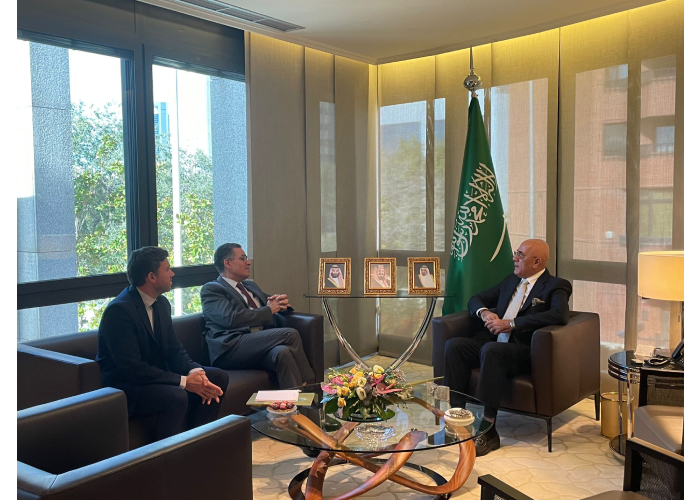Marking a significant shift in regional diplomacy, Saudi Arabia appointed Faisal Al-Mujfel as its first ambassador to Syria in over twelve years. The move comes after a period of strained relations between the two countries, which severed diplomatic ties in 2012 at the outset of the Syrian civil war.
The Syrian conflict exposed a deep ideological rift between Saudi Arabia, a staunch supporter of Syrian rebels, and Syrian President Bashar al-Assad's government, backed by Iran and Russia. Riyadh funneled military aid to opposition groups aiming to oust Assad, whom they accused of brutally suppressing peaceful protests.
However, the protracted war resulted in a stalemate, with Assad regaining control over most of Syrian territory. This, coupled with a growing desire for regional stability, appears to have prompted a recalibration of Saudi Arabia's stance towards Syria.
Last year, Syria was readmitted to the Arab League, a 22-member organization focused on Arab cooperation, after a suspension of several years. This move, spearheaded by Gulf states like the United Arab Emirates, was seen as a potential prelude to a broader thaw in relations between Syria and Arab nations.
The appointment of Ambassador Al-Mujfel follows Syria's reopening of its embassy in Riyadh in December 2023 and the subsequent appointment of a Syrian ambassador to Saudi Arabia. The exchange of ambassadors signals a formal restoration of diplomatic channels, paving the way for potential political and economic cooperation between the two countries.
While the long-term trajectory of Saudi-Syrian relations remains uncertain, the appointment is a noteworthy development. It suggests a growing consensus among Arab states that regional stability can best be achieved through dialogue and re-engagement, rather than isolation.
The path to full normalization is likely to be complex. The Syrian war has caused immense damage to Syria's infrastructure and economy, and the human rights situation in the country remains a cause for concern. However, the Saudi move represents a critical first step towards rebuilding bridges between the two nations.
The impact of this development will extend beyond the immediate relationship between Saudi Arabia and Syria. It could potentially serve as a model for other Arab states that have been hesitant to re-engage with the Assad regime. A broader normalization of relations across the region could contribute to a more peaceful and stable Middle East.

